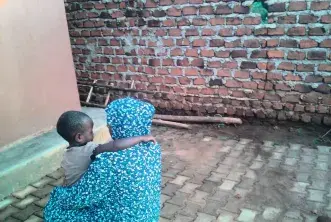Experts at a webinar on violence against women during COVID-19, urged religious leaders and policymakers to take swift and coordinated action to halt the rising rates of domestic violence in countries around the world.
The webinar, held on June 29 invited interventions from Dubravka Šimonović, United Nations Special Rapporteur on Violence against Women; Shahin Ashraf, Head of Global Advocacy for Islamic Relief Worldwide; Anna Alvazzi del Frate, Chair of the Alliance of NGOs on Crime Prevention and Criminal Justice; Ugoji Eze, Founder of the Eng Aja Eze Foundation; Vesna Nikolić-Ristanović, Director of the Victimology Society Serbia; Fatma Ismetova Usheva, Researcher at the United Nations Office on Drugs and Crime (UNODC); and Sakena Yacoobi, Director of the Afghan Institute of Learning. It was co-organized by KAICIID, the Coalition of Faith-Based Organizations, UNODC and partners.
According to a recent briefing by the United Nations, more than 243 million women and girls globally have been subjected to physical or sexual violence in the last 12 months. This number is expected to increase throughout the COVID-19 pandemic, as security, health and financial concerns heighten tensions exacerbated by lockdown and isolation measures.
“During the lockdowns women and children are locked down in homes, and although homes are safe for the majority, for those who are facing domestic violence, home can be a very dangerous place.” Šimonović said.
Already, countries across the world have reported a significant increase in domestic violence calls since lockdowns began in March. In France, reports of domestic violence have increased by 30% since the lockdown on March 17. In Argentina, emergency calls have increased by 25% since March 20.
“We need to be aware that COVID-19 is a pandemic without borders, but also violence against women is a pandemic without borders. Even if in the future we are able to suppress COVID-19, violence against women will remain as a challenge,” Šimonović said.
Ashraf said that faith-based organizations (FBOs) are witnessing new gender dimensions during the COVID-19 pandemic which are “numerous and numbingly severe, but they are not new or surprising. If anything, we’ve seen that the invisible Coronavirus has made visible that there are already so many existing fault lines in our world, with social injustices, persistent gender inequalities, sexism, racism and xenophobia.”
The increase in domestic violence is occurring at a time when social services are compromised due to the pandemic – in some countries, services such as mental health care for victims of rape have been suspended due to overburdened health systems. Police and security forces have also reported a strain due to COVID-19.
Ashraf pointed out that religious institutions and communities can fill many of these gaps and are willing to do so. “From the pieces of research that we’ve done we’ve realized that spirituality and commitment to social justice advocacy and the willingness to take individual action to combat injustices is more prevalent than ever, particularly during this COVID-19 pandemic,” she said.
“It will be very important to see how FBOs send those messages that are focusing on violence and protection for victims,” Šimonović added.
Although the current pandemic has presented numerous social, economic and political challenges, Ashraf says it also provides an opportunity to transform systemic inequalities. “Viruses do not discriminate. It is the society and systems that do. What is now needed more than ever is a systematic transformation which makes institutions better equipped to handle a crisis, to address unequal distribution and to orient economies toward a common perspective.”
Ashraf explained that this institutional transformation is not just limited to governments but should encompass faith-based institutions as well. “Whether that’s in our mosques, our temples, our churches, our gurdwaras, we all have to revisit what leadership qualities are and what we are required to do within this societal experience.”


